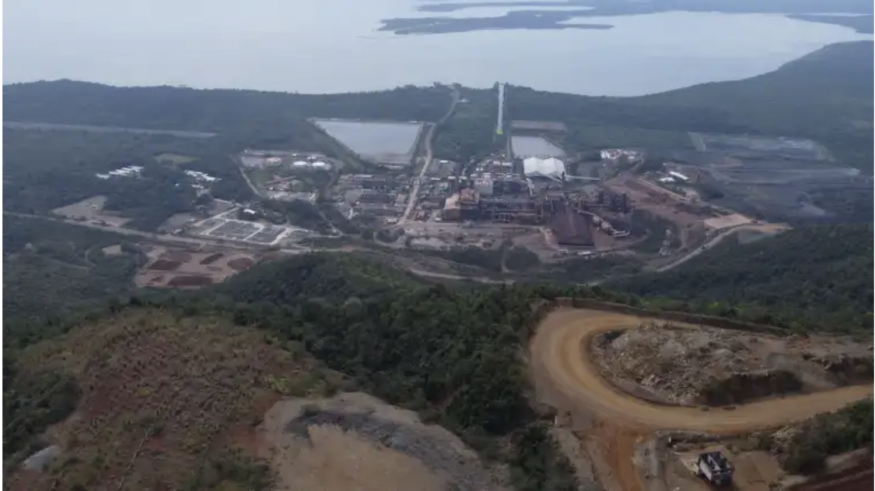Guatemalan Miners Suffer As American Sanctions Bite

Hundreds of Guatemalan miners have been made redundant after the United States imposed sanctions on two companies operating in the country.
The companies have been forced to suspend operations in Guatemala in a move that will rob local and central governments of millions of dollars in royalty payments.
According to reporting by Prensa Libra, a Guatemalan newspaper, the sanctions could backfire on the US as many of the workers are considering emigrating to America as they cannot find jobs near their homes in the mining region.
José Tiul, a former miner, told the newspaper: "You have to leave El Estor to find a job."
Last November, the US Treasury's Office of Foreign Asset Controls (OFAC) imposed sanctions on CGN and Pronico, which run the Fennix nickel mine and processing plant in El Estor. CGN and Pronico are owned by Solway Investment Group, which is based in Switzerland.
OFAC also sanctioned another Guatemalan miner called Mayaniquel, which is based in Alta Verapaz. OFAC said that Mayaniquel was a subsidiary of Solway.
The US Government's justification for imposing sanctions was that managers at CGN and Pronico had engaged in corruption and that the companies were Russian controlled.
Solway said that the individuals accused of corruption had been suspended and would be investigated. Both Solway and Mayaniquel said they were not Russian controlled.
Following the imposition of the sanctions, all three facilities have been forced to suspend operations.
Valery Zurita, executive director of the Natural Resources, Mines and Quaries Guild (Grenat), said: "Now that CGN and Pronico have suspended operations, they have already laid off 50% of the contractors. Before, they employed about two thousand workers, which is worrisome and becomes a latent risk because in the short term it could affect around 12,000 families, who have benefited from the work generated by this activity. This is because there are studies that indicate that for every job in mining, 6 more are generated in other industries."
Another former miner, Edwin Xii, told Prensa Libra that many workers would have to leave the mining towns. "That was the only source of work. If not, we have to emigrate elsewhere. The truth is, it is difficult to leave the family, but if you have to do it, what else is left", he said.
The suspension of the mines will also have an impact on government revenues. According to data obtained by Prensa Libra, Guatemalan nickel-iron exports grew by 22% in 2022 to $469 million. The country earned royalties worth Q8.9 million ($1.1 million) from nickel and other tax revenues of Q5.4 million ($700,000). Between 2010 and 2021, CGN paid more than Q21.2 million in royalties ($2.7 million).
Guatemala's mining industry is dominated by nickel and ferronickel production, which have become highly valued commodities used in batteries for electric vehicles.
Solway said in a statement: "These entities [CGN and Pronico] and Solway are not owned, associated or affiliated with Russian state government figures. Both sanctioned individuals Dmitry Kudryakov and Iryna Litviniuk had held management positions in the subsidiaries for many years; both have been immediately suspended from their positions pending the results of the investigation by outside legal counsel."
Mayaniquel said: "Neither Mayaniquel, nor its direct or indirect shareholders, is or ever has been related, owned, or controlled by either the persons, companies, or corporate group mentioned in the OFAC press release. Mayaniquel has always carried out its operations independently and within the framework of the law for the benefit of its stakeholders and local communities."
Subscribe to Latin Post!
Sign up for our free newsletter for the Latest coverage!
© 2026 Latin Post. All rights reserved. Do not reproduce without permission.













